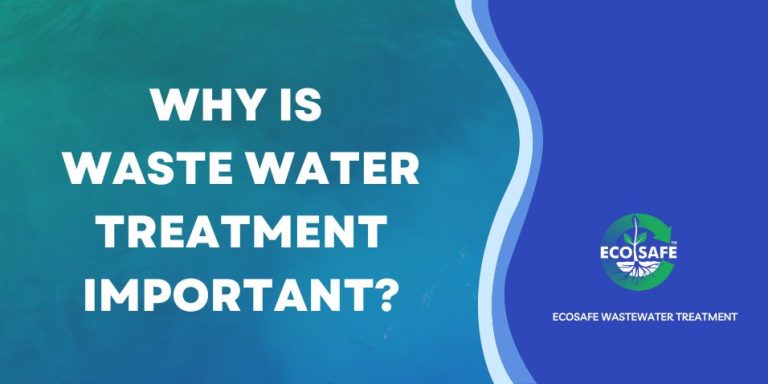The Buzz on Reclaim Waste
Table of Contents4 Simple Techniques For Reclaim WasteExcitement About Reclaim WasteSome Known Facts About Reclaim Waste.The 20-Second Trick For Reclaim WasteTop Guidelines Of Reclaim Waste
Check out the kinds, events, and kinds of liquid waste. Residential sewer waste describes the waste and products from a household septic storage tank. This kind of waste is produced by humans in residences, schools, and other buildings. This only consists of sewage-disposal tanks that have a drainpipe field. The appropriate management and disposal of domestic sewage waste call for fluid waste to be moved to a sewer treatment plant where the correct techniques and equipment are applied to cleanse and deal with waste.
Industrial waste commonly consists of potential risks, such as combustible products or a combination of liquid and solid waste items, and needs an advanced and detailed disposal procedure. The disposal of business waste usually entails the filtering of waste prior to transport to make sure secure and proper disposal. Industrial waste is created from by-products and overflow of commercial procedures and production.
This kind of waste can not make use of the same sewer monitoring transport or procedures as septic or business fluids. The hazardous waste monitoring procedure needs the examination and screening of fluid waste prior to it undergoes the disposal process (industrial wastewater treatment). Runoff waste is the liquid waste that originates from drainage and excess stormwater in extremely populated locations or cities
Drainage waste can cause contamination and flooding otherwise handled correctly. Find out more regarding sewage system cleansing and waste monitoring. Making sure correct waste management can prevent catastrophes and decrease ecological harm. Both individuals in residential setups and specialists in commercial or manufacturing markets can benefit from recognizing the procedures and guidelines of fluid waste monitoring.
Some Of Reclaim Waste
Contact PROS Solutions today to discover our waste administration and disposal solutions and the appropriate ways to care for the fluid waste you produce.
This so-called 'wastewater' is not only an essential resource however, after treatment, will be launched to our land, rivers or the ocean. Used water from commodes, showers, baths, kitchen area sinks, laundries and industrial processes is known as wastewater.

water made use of to cool equipment or tidy plant and equipment). Stormwater, a kind of wastewater, is overflow that streams from agricultural and city areas such as roofing systems, parks, yards, roadways, courses and rain gutters into stormwater drains pipes, after rain. Stormwater flows unattended directly to regional creeks or rivers, at some point reaching the sea.
Our Reclaim Waste PDFs
In Queensland, a lot of wastewater is dealt with at sewer treatment plants. Wastewater is delivered from residential or commercial sites via a system of sewage systems and pump stations, understood as sewerage reticulation, to a sewage treatment plant.
The Department of Natural Resources encourages city governments about handling, operating and keeping sewerage systems and treatment plants. In unsewered areas, city governments may need owners to mount specific or family sewage therapy systems to treat domestic wastewater from bathrooms, find out cooking areas, shower rooms and laundries. The Division of Natural Resources authorises the usage of home systems when they are confirmed to be reliable.
In some brand-new communities, therapy of some stormwater to get rid of trash, sand and gravel has actually started utilizing gross toxin catches. Wastewater therapy happens in four stages: Eliminates strong matter.
Wastewater after that flows right into huge tanks where solids work out and are gotten rid of as sludge. Oil and scum are skimmed from the surface. Uses little living microorganisms referred to as micro-organisms to damage down and eliminate continuing to be dissolved wastes and great particles. Micro-organisms and wastes are integrated in the sludge. Gets rid of nitrogen and phosphorus nutrients that could trigger algal blossoms in our waterways and threaten aquatic life.
The Single Strategy To Use For Reclaim Waste
Nutrient elimination is not readily available in all sewer therapy plants due to the fact that it calls for pricey specialist tools. It is ending up being more common in Queensland. Clear liquid effluent created after treatment may still consist of disease-causing micro-organisms. If this effluent is released right into rivers such as rivers or the sea, the micro-organisms will at some point die out.

This usually means wastewater needs to be treated or contaminants gotten rid of prior to it can be released to waterways. Most wastewater streams right into the sewerage system. Under the Act, city governments administer approvals and permits for eco relevant activities (Ages) entailing wastewater launches that may have a local influence. The division provides authorizations and permits to ERAs including wastewater launches that could have a local or statewide impact.
The Best Guide To Reclaim Waste
Surveillance provides valid details concerning water quality and can verify that licence problems are being fulfilled. The information obtained via surveillance provides the basis for making water quality decisions.
Comments on “How Reclaim Waste can Save You Time, Stress, and Money.”